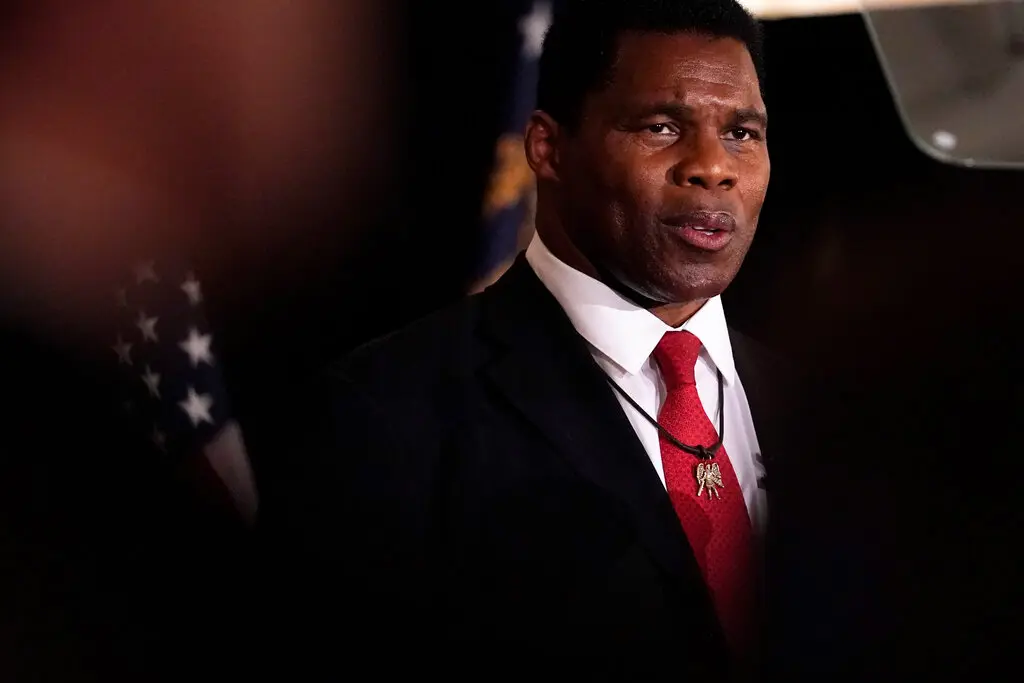The National Football League hero and political neophyte Herschel Walker has discovered the critical differences between the two professions. It is the difference between brawn and brain — not to suggest that football players cannot possess both, but it is not the essential skill set.
In fact, many celebrities use their fame and name recognition from spots and entertainment to jumpstart a political career. The most successful of them, however, bring along a fundamental intellectual foundation and basic communication skills. The most successful in that category – beyond refutation – was President Reagan. He rose from a second-tier actor to the head of the Actor’s Guild … to governor of California … to President of the United States (and a very popular one, at that).
President Trump also used his entertainment celebrity to gain public office – and it was one gigantic leap from the corporate executive office to the Oval Office. For him it did not work so well. He failed in achieving a second term (no matter of your opinion on the outcome of the popular vote) – unlike Reagan who won his second term in a national landslide, winning 49 states and 525 electoral votes to Democrat Walter Mondale’s 13.
Entertainment and sports celebrities have not been a major factor in past Senate races. None since Hollywood song and dance man George Murphy jumped from the silver screen to the world’s Senate in California in 1965. Had Walker won, he would have been only the second celebrity and only the first sports figure to take up a Senate seat. But he did not.
The problem for Walker and the Republican Party was that fact that he was not a well vetted candidate. He won the nomination almost exclusively on the backing of President Trump – who seemed to think that celebrity was enough.
Not only was Walker burdened by his ties to an increasingly unpopular Trump, he was not a strong candidate on his own. To say he seemed ill-prepared to deal with complex political issues and to articulate effectively is an understatement.
In an usually brutal — and some might describe as a racist — attack on Walker, former South Carolina state representative and current CNN contributor Bakari Seller said that many black people will oppose Walker because he “represents the worst elements of every prejudicial trope” because of he is inarticulate, anti-intellectual … inability to speak for himself.”
Seller says black voters are angry at Walker for being a negative stereotype of a black man. CNN’s Van Jones echoed the same theme. Joy Reid carried it over at MSNBC – calling Walker an insult to black people.
(Does anyone else find it interesting that Walker is called an insult to black people – a racist trope? When it comes to the Trump they hate, they claim he is typical of white people – and least Republican white people. Just asking. But I digress.)
In many ways, the Walker race was decided by two overriding issues. To his disadvantage was his tie to Trump and his weakness as a campaigner. To his advantage was the desire of Republican voters to prevent Democrats from having clear control of the Senate. It meant that instead of equally divided committees, Democrats will have majorities … making approval of Biden’s judicial nominations more difficult … and liberating Vice President Harris from staying in Washington to break tie votes. Unfortunately for Walker and the Republicans, the disadvantages outweighed the advantages.
All that set aside, Walker could not overcome the burden of Trump. As with so many other candidates across the nation, he benefited from the Trump of the primary season — but finally scuttled by the voters with a diminished view of the contemporary Trump. The failure of the major so-called Trump candidates across the nation was prescient in terms of the Walker/Warnock race.
In the final analysis, Trump using his influence to create a class of his loyalist candidates backfired on Trump and led to one defeat after another for the Republican Party. If there are lessons to be learned, the Georgia campaign should be the last in which Trump has ANY influence in picking candidates. And it should be apparent that Trump has no better chance of winning another election than his hand-picked candidates.
So, there ‘tis.
